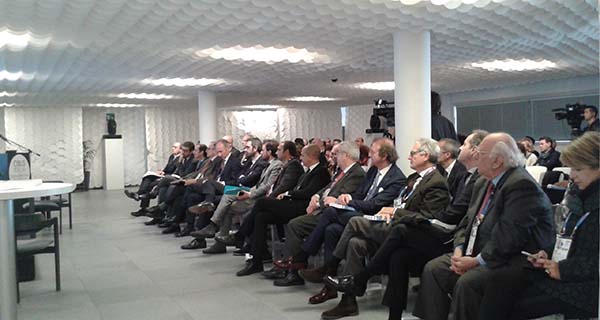
The phenomenon of Italian sounding in 2014 reached a record 60 billion euro turnover accounting for 25% of Italian food exports, while counterfeiting stood at about €6 billion. Given this scenario, what tools do Italian companies have to defend their products in international markets? During the ‘Export and protection of Made in Italy food’ conference organized by Kpmg, in collaboration with Food, Fiere di Parma and Federalimentare, some business owners and managers wondered how to value and protect Italian food products, which from 2007 to 2014 recorded an increase in export of almost 50 percent.
The data presented by Massimo Fabio, Kpmg partner, shows that there are still considerable growth opportunities for Italian food abroad and that to protect it from imitation and counterfeiting one must resort to international law and customs. “To protect themselves from imitation Italian companies may resort to the institutional path through bilateral agreements – said Fabio – but can also enable communication of information campaigns to educate the consumer.”
Luigi Scordamaglia, president of Federalimentare cites the experience of Expo calling it a unique business opportunity for Italian companies, which have had a chance to show their production model to worldwide buyers.
“Today detractors jump on the bandwagon – said Scordamaglia provocatively – but we Federalimentare, together with Fiere di Parma, have believed in it from the start, giving voice to the experiences of Italian companies wishing to expand in international markets”. According to Scordamaglia, to face the future challenges that manufacturers will have to face in global competition there is no recipe for success, however the business models that work require aggregation formulas.
Antonio Cellie, Fiere di Parma ceo recalled, in this regard, that “70% of exports is generated from 1.2% of the companies”, reiterating the importance of networking in overseeing emerging markets in addition to those already established.
During the round table the debate between some important entrepreneurs and managers of Italian food, which over the years have been able to build models of success in international markets, also touched on communication activities, which are particularly innovative.
Massimo Tuzzi, general manager of Zonin 1821, confirms that to better address international competition, more aggregation, through new ways of promotion, is required.
“To overcome the concept of ‘small is beautiful’ – explains the executive – we have decided to promote the aggregation of companies in our industry that alone could not compete. Thanks to our experience in international markets we invited Italian chefs, sommeliers and journalists from around the world to visit the farms and learn about the various stages of the supply chain. It would be advisable for the institutions to support such initiatives through tax cuts or dedicated Investment”.
Marco Lavazza, vice president of Lavazza, also reaffirms the importance of presenting abroad together and asked the institutions to not investment widespread but to plan and choose the most efficient projects.
“To push the Italian products – adds Stefano Agostini, of Sanpellegrino, who was brand ambassador of Made in Italy before his time in the mineral water sector – it can certainly be effective to work together, even in cross-cutting areas, as bearers of unique values.”
Alberto Auricchio, owner of a dairy company specialized in the production of Pdo cheeses, also notes that to achieve concrete results in international negotiations one must abandon certain standpoints such as a complete ban on the marketing and production of imitation products, which have a strong position and would now be difficult to eradicate (see Parmesan & co.). “I think the most useful approach – said Auricchio – is to implement initiatives that put the consumer in a position to recognize the original product. The challenge is to push the excellence of Made in Italy and comparison based on price is not a winning strategy. ”
“Our distinctive feature – agrees Lavazza – is to enhance and promote high quality Italian products, which is why Lavazza, as a historic and family brand, has chosen to be part of events of global concern such as Wimbledon and Roland Garros and activate partnerships with the Guggenheim Museum in New York”.
Also for Pastificio Rana communication is a strategic lever to promote Italian food outside Italy. “Our strategy – says the president Giovanni Rana, who was the first entrepreneur-testimonial of his company – also works well abroad. We replicated the model in the United Kingdom and in France and even the United States, where we have outsourced production and where our products can be found in the main chains of the country”.

